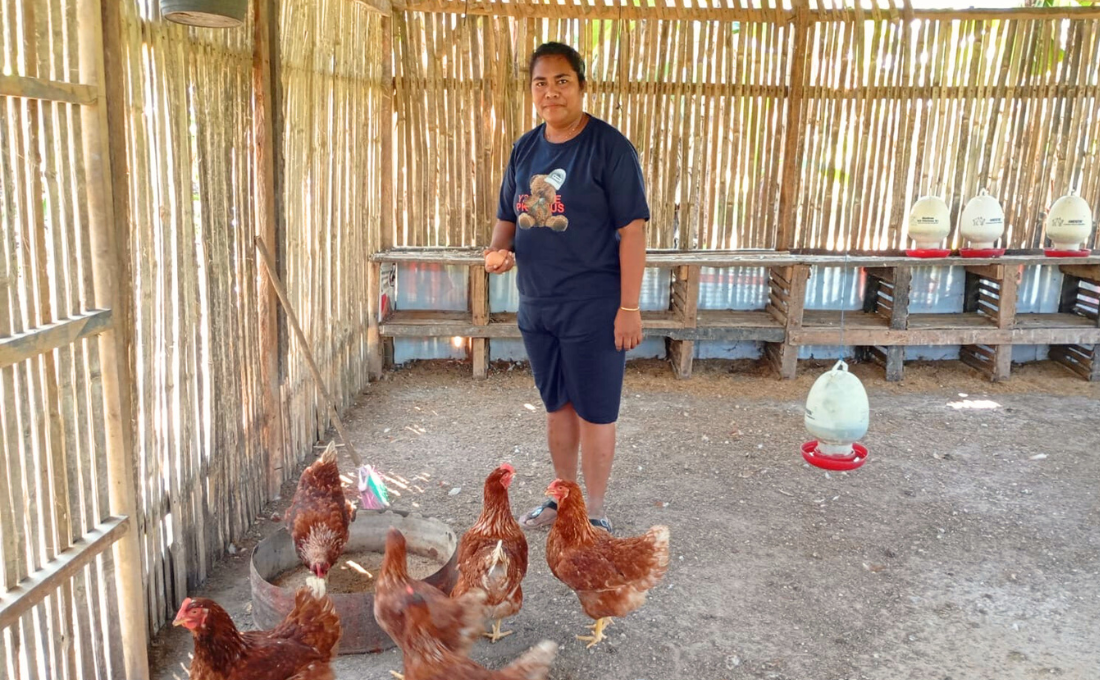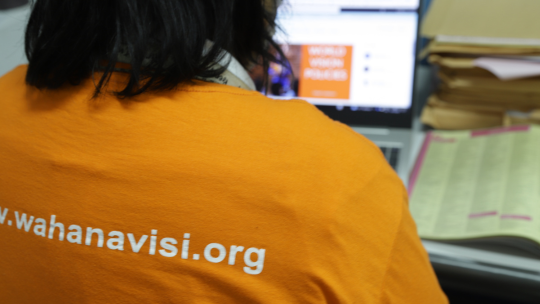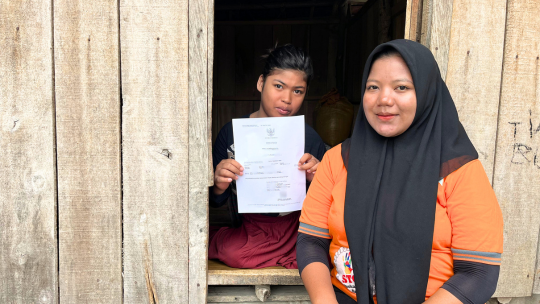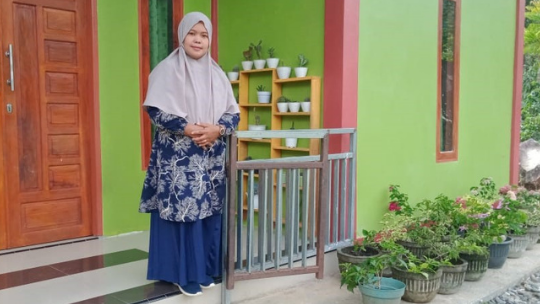How a Thriving Village Economy is Improving Nutrition for Children and Families

Every parent wants to provide the best for their children's future. They work hard, saving a portion of their income to support their children's and family's needs. This is what 10 parents, members of a savings and loan group in a village supported by WVI in South Central Timor Regency, East Nusa Tenggara, are doing. "As parents, we use the annual dividends from our savings and loan group to meet our children's school needs," said Sarny, one of the mothers who is a member of the group.
The desire to help each other, to be independent, and to progress together became the strength of the savings and loan group from the very beginning. Sarny and the other group members adopted a savings and loan system introduced by Wahana Visi Indonesia, called S4T (Savings for Transformation). The main goal of S4T is not just about saving, but also about managing household finances, with children's needs as a priority.
Village savings and loan groups like the one Sarny belongs to can also develop into business groups. The savings and loan group in Sarny's village is one such example. Wahana Visi Indonesia collaborated with the group to realise a laying hen business initiative. In the second year of the savings and loan group's operation, there was a new routine that brought life and boosted the village's economy.
The business began with the construction of a chicken coop from start to finish. The construction involved many hands but one shared spirit. The group also organised a schedule for roster duties to care for the laying hens. This shows that the villagers are becoming more motivated and realising that there is hope for the village's economic movement and for their children's well-being.
"We sell the eggs from this group business to neighbours and some have become our regular customers. We use the proceeds from the egg sales to save in the savings and loan group, while some of it is set aside to buy feed," said Sarny, who uses her backyard for the laying hen coop.
She continued, mentioning some of the agreements within the business group: "The members in charge of feeding the chickens receive five eggs to share with their families. We also don't forget to deliver 120 eggs to the Posyandu (integrated health post) for our children. But not all of our laying hens survived. Some died from a virus. We certainly didn't give up; we agreed to buy laying hens from another group and continued to raise and care for them."
The positive impact of the group has extended to the child health sector. Thanks to the village's laying hen business, the daily protein needs of children and their families can be met. Another group member, Febi, stated, “I am very grateful and enthusiastic because we will definitely enjoy the results. My child and other children in the village will eat eggs every day.”
What started as a solution for the family economy has now had an impact on meeting the nutritional needs of toddlers. Febi and the other mothers feel that the nutritional problems of children in their village have found a way out. While children used to only eat rice with vegetables, they can now access protein-rich food. Access to eggs has also become very close since they are cultivated themselves. The community no longer has to travel to the distant sub-district market to obtain protein-rich food.
Sarny and her group members are optimistic that their village's savings and loan and business initiatives can sustain and bear good results for their children and families. "Now we are thinking about how we can generate more money in the future to restock the coop for its sustainability, because we have received so many benefits. We also hope for vegetable seed support to plant behind the coop, which can be a nutritional supplement for our families or even something we can sell," Sarny hoped.
Author: Joanike Rohi (MEL Officer from Timora Cluster operational area)
Editor: Mariana Kurniawati (Communication Executive)



